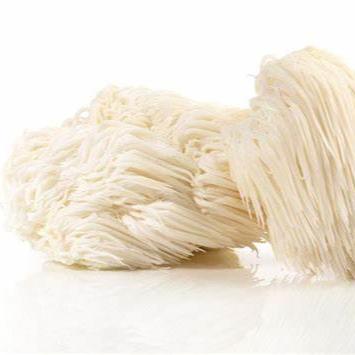The Lion's Mane mushroom (Hericium erinaceus) has a rich history that spans centuries, bridging ancient traditions and modern health science. Known for its unique, shaggy appearance that resembles a lion's mane, this fascinating fungus has been revered in Eastern medicine for its profound health benefits. Today, it's celebrated in the wellness community worldwide as a superfood that supports cognitive function, mental clarity, and overall brain health.
Ancient Roots
In traditional Chinese medicine, Lion's Mane was used to fortify the spleen, nourish the gut, and as a general restorative. Its use was rooted in the belief that a healthy mind resides in a healthy body, and the gut was considered the foundation of one's overall health. Similarly, in Japan, it was consumed by Buddhist monks to enhance their focus during meditation, highlighting its long-standing association with cognitive enhancement and mental clarity.
The ancient texts of these cultures often refer to Lion's Mane as a potent tonic for longevity and vitality. However, it wasn't just its health-promoting properties that made it a staple in these traditional practices; its rarity and distinct appearance also contributed to its esteemed status.
Modern Recognition
The transition of Lion's Mane from an ancient remedy to a modern superfood can be attributed to the growing body of scientific research that supports its health benefits. Studies have shown that Lion's Mane contains two unique compounds, hericenones and erinacines, which can stimulate the synthesis of nerve growth factor (NGF). NGF is crucial for the maintenance and growth of neurons, indicating Lion's Mane's potential in promoting neural health and preventing cognitive decline.
A landmark study by Mori et al. (2009) in "Phytotherapy Research" demonstrated the mushroom's ability to improve mild cognitive impairment in a double-blind, placebo-controlled trial. Participants who consumed Lion's Mane exhibited significant improvements in cognitive function over the study period, highlighting its potential as a natural nootropic.
Furthermore, research by Friedman (2015) in the "Journal of Agricultural and Food Chemistry" explored the mushroom's nutritional and health-promoting properties. The study found that Lion's Mane contains a plethora of bioactive compounds that contribute to its antioxidant, anti-inflammatory, and immune-boosting effects, reinforcing its status as a superfood.
A Modern Superfood
Today, Lion's Mane is widely available in various forms, from fresh mushrooms to extracts, powders, and capsules, making it easier than ever to incorporate into one's diet. Its popularity has surged among health enthusiasts, biohackers, and anyone looking to naturally enhance their cognitive function, mental wellness, and overall health.
As we continue to explore the synergies between ancient wisdom and modern science, Lion's Mane stands out as a testament to the enduring power of nature's remedies. It embodies the journey of discovering and rediscovering the profound benefits hidden in the natural world, making it not just a supplement for the body and mind but a bridge between the past and the present in the pursuit of health and well-being.





